We’ve all heard how important data is in modern high-speed technology. We all have a track record of how everything can be achieved if we use the right data to extract information, come to conclusions, and improve productivity.
But have you ever wondered how this data was collected or about the data collection process?
We’ve seen some excellent table data or let’s say any kind of data available on the web and wondered how we can download this data with minimal effort?
Yes, Web Scraping is its solution that has been used very quickly and has been very useful. In this article, we will be answering the most common questions related to Web Scraping or you can also refer to it as a web scraping FAQ.
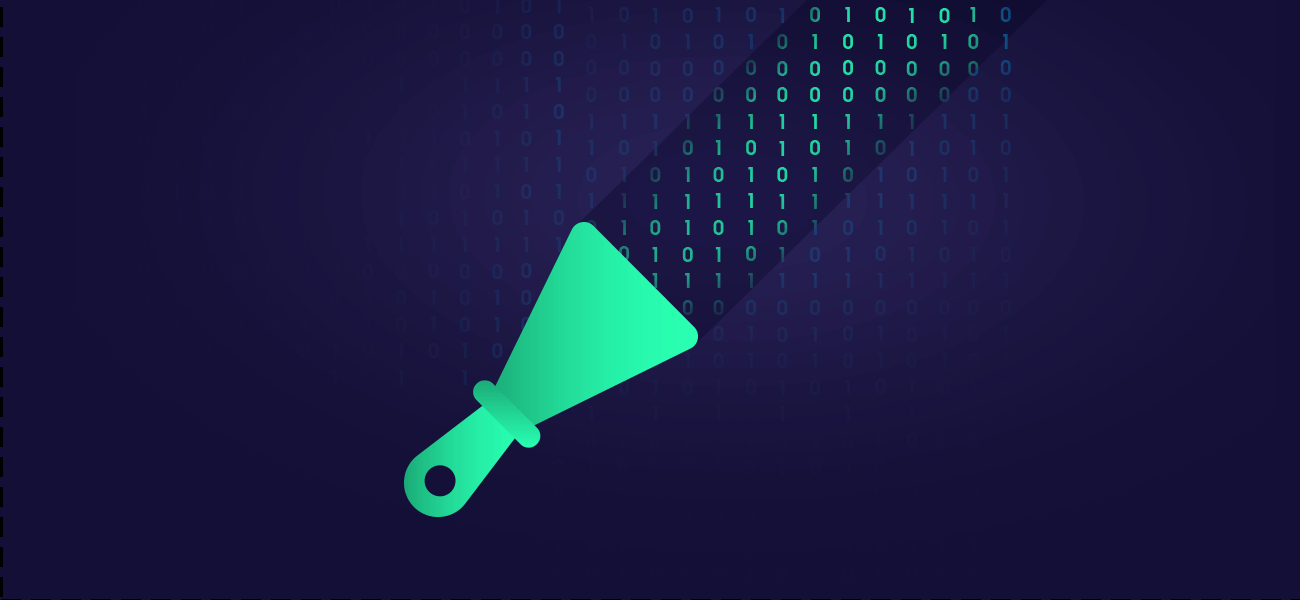
Web Scraping
Below are some Web Scraping FAQ’s
1. What is web scraping?
Web scraping which is also known as web harvesting and data extraction commonly, basically refers to obtaining data available on the internet by leveraging Hypertext Transfer Protocol (HTTP) or through web browsers.
Although you can do web scraping manually, it is highly advised to use automated tools because when we try to scrape the web data, it can be less costly and works at a faster rate while taking care of the anti-scraping mechanism implied over the server. In most cases, web scraping referred to as a simple task but it can be very tedious.
All the Websites do not follow any standard format. They are created in different shapes and forms, and as a result, web scrapers are designed using different functions and have the capability to adapt to these changes.
One such service is opted by ScrapingPass. It makes sure that all your scraping requirement is done hassle-free and without getting blocked from the website.
2. Is it legal to use web scraping?
Web scraping is not illegal but it has its own limitations.
Web scraping is just a tool for collecting publicly available data more easily. However, it might be illegal if you are not respecting the privacy and scraping policies of the webpage.
It might be possible that the targeted website already has some strict policies which restricts scrapers in web scraping without prior permission from the user.
It is highly recommended that you read the Terms and Conditions of the website thoroughly before you start scraping it.
3. What’s the best web scraping tool?
It is a completely subjective question as choosing what scraping tool you need is completely dependent on the nature of the website and its complexity.
As long as you can find a tool that can satisfy your requirement of data gathering or data generation very fast and smoothly within an acceptable cost, you are good to go.
You can check out this article where we have done some groundwork for you to help you in your hunt.
The more specifically you know about your scraping needs, the better idea you will have when you are on your hunt for finding such a tool or service.
4. What is web scraping used for?
Web scraping is aimed towards collecting data hassle-free so that it can be applied in any industry that requires the data for any purpose.
It is used extensively in market analysis, price tracking, human capital optimization, lead generation, and other fields where data can be crucial to draw insights.
- Scraping stock prices into an app API
- Scraping data from Yellow Pages to generate leads
- Scraping data from a store listing to create an organized data of business locations
- Scraping product data from e-commerce platforms like Amazon or eBay for competitor analysis
- Scraping sports stats for betting or fantasy leagues
- Scraping site data before a website migration
- Scraping product details for comparison shopping
- Scraping financial data for market research and insights
5. Can I extract data from the entire web?
Many people believe web scraping is a magical tool that can scrape data from multiple sources on the entire Web or any web page of their choice.
But in reality, this is not feasible at all.
Since websites do not follow a universal page structure, they have certain methods to stop these freely available tools, it would also be hard for one web scraper to interact with all pages.
6. Are web scraping and data mining the same things?
Web scraping and data mining are two different concepts and one should not fall into the trap of assuming they as the same things.
Web scraping is the process to collect raw data using tools and the HTML structure of the Webpage, but data mining is the process of discovering patterns in large data sets that which is structured, or unstructured.
Web scraping refers to the extraction of data or information from any webpage.
Generally, this also involves reformatting this unstructured data into a more structured format, such as an Excel sheet, Comma Separated Variable(.csv) files.
While web scraping is done in a traditional manual way, but in most cases, web scraping tools are preferred over traditional methods due to their speed and hassle-free operation.
Data Mining is usually referred to as the process of advanced analysis of extensive data sets.
This analysis can be advanced enough to adhere to machine learning algorithms in order to unveil specific trends or insights from the dataset which is not visible at first glance.
For example, data mining might be used to analyze millions of transactions in a split second from a retailer such as Amazon/Flipkart to identify specific areas of growth and decline.
Web scraping also uses a different application which is used to extract and build the artificial data sets that could possibly be used for further analysis leveraging Data Mining techniques.
7. How to avoid getting blocked from scraping a website?
Many websites might block you if you scrape them in a suspicious robot-like manner.
To avoid being denied, you need to make the scraping process look more like a human browsing a website or at least try to mimic the same.
For example, adding a delay in between concurrent requests, using a proxy, using different User-Agent headers or you can also apply multiple other methods which will ultimately help you in avoiding these mistakes.
We have discussed more how one can imitate this human-like pattern or mimic a browser-based scraping in this article.
8. Can we automatically solve CAPTCHA during web scraping?
CAPTCHA used to be the biggest roadblock in traditional web scraping, but now it can be easily solved using various services.
Many web scraping tools have the feature of solving CAPTCHA automatically are hassle-free during the extraction process.
Also, there are lots of CAPTCHA solver services which is like any other plug-n-play service that can be integrated with scraping systems.
9. How can one differentiate between web scraping and web crawling?
Web crawling and web scraping are somehow related processes, hence it is possible to get confused between these two at first.
Web scraping as we already addressed before is a process of obtaining data from webpages, whereas web crawling is to systematically browse the publicly available webpage, typically for the purpose of web indexing.
I hope this article is a good head start for your scraping journey. If you have any other doubts related to any specific topic do check out our other blogs.
You can also opt for our services for hassle-free scraping and reliable solutions. We also provide tailor-made custom services with which you can convert any website into an API service.


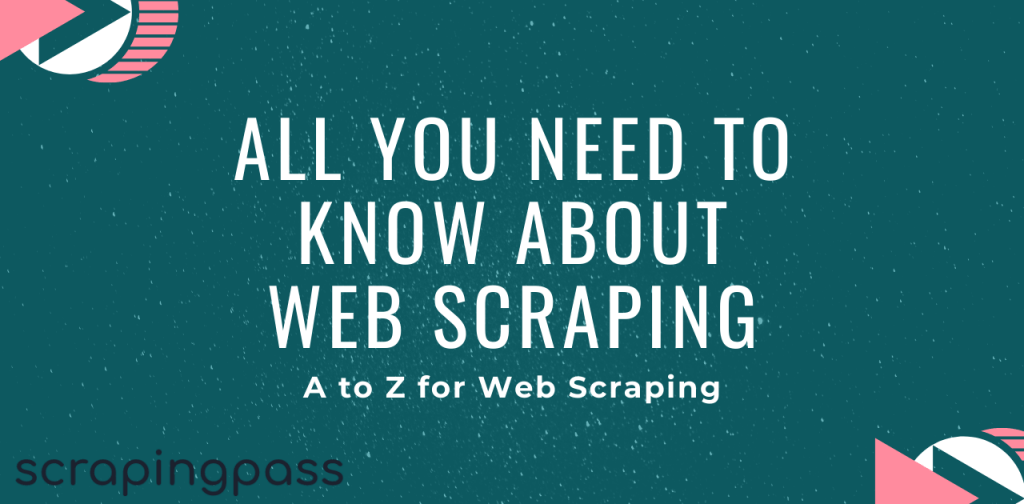
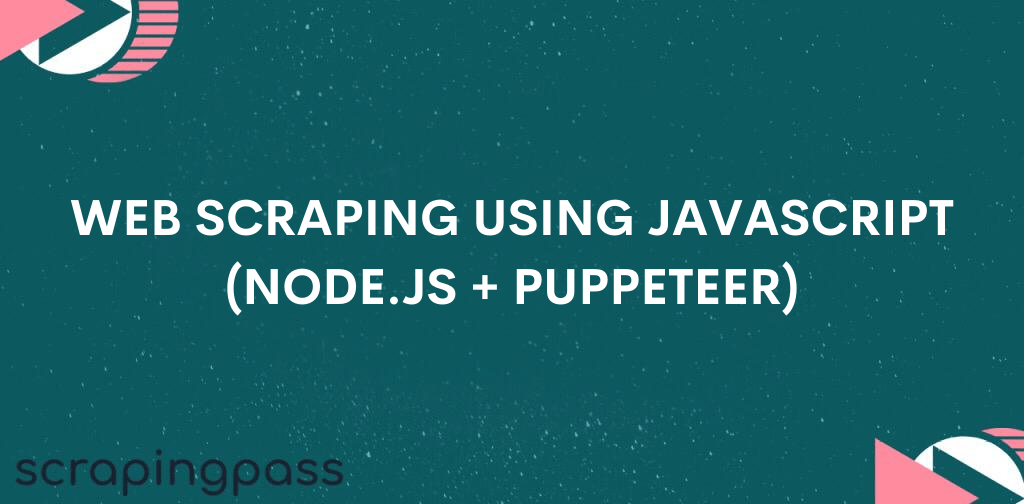
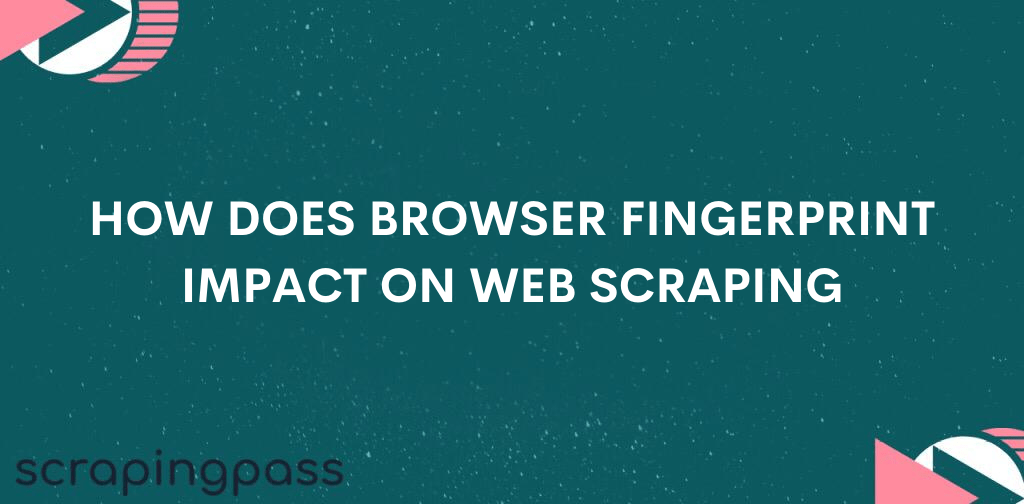
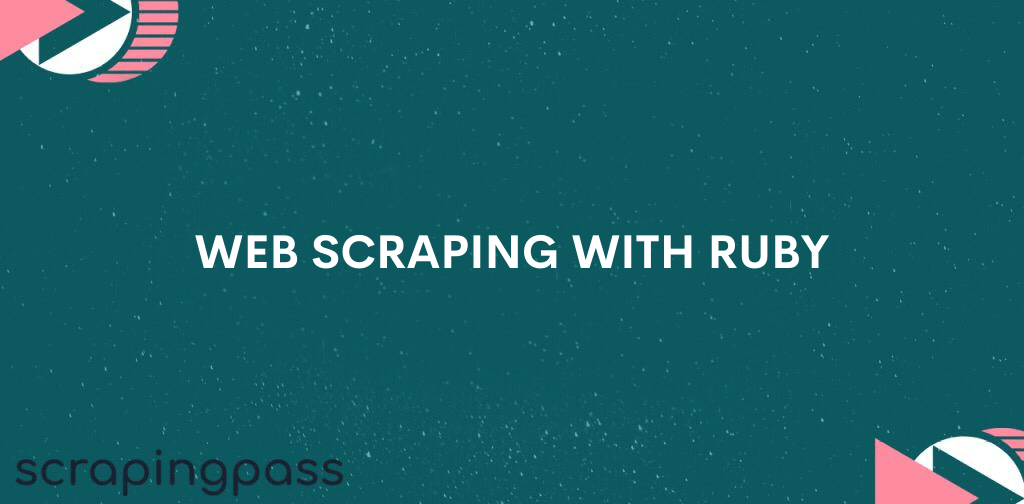

Abhishek Kumar
More posts by Abhishek Kumar